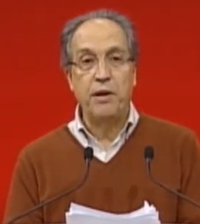| ||||||||||||||||||||||||||||||||||||||||||||||||||||||||||||||||||||||||||||||||
230 seats to the Portuguese Assembly 116 seats needed for a majority | ||||||||||||||||||||||||||||||||||||||||||||||||||||||||||||||||||||||||||||||||
|---|---|---|---|---|---|---|---|---|---|---|---|---|---|---|---|---|---|---|---|---|---|---|---|---|---|---|---|---|---|---|---|---|---|---|---|---|---|---|---|---|---|---|---|---|---|---|---|---|---|---|---|---|---|---|---|---|---|---|---|---|---|---|---|---|---|---|---|---|---|---|---|---|---|---|---|---|---|---|---|---|
| Registered | 8,906,608 | |||||||||||||||||||||||||||||||||||||||||||||||||||||||||||||||||||||||||||||||
| Turnout | 5,904,854 (66.3%) | |||||||||||||||||||||||||||||||||||||||||||||||||||||||||||||||||||||||||||||||
| ||||||||||||||||||||||||||||||||||||||||||||||||||||||||||||||||||||||||||||||||
| ||||||||||||||||||||||||||||||||||||||||||||||||||||||||||||||||||||||||||||||||
The 1995 Portuguese legislative election took place on 1 October. The election renewed all 230 members of the Assembly of the Republic.
The incumbent prime minister, Aníbal Cavaco Silva, decided not to run for a fourth consecutive term[1] and the Social Democratic Party, choose Fernando Nogueira, one of Cavaco Silva's deputies, as leader and candidate for prime minister in a highly contested and bitter party congress in February 1995.[2] But, the PSD was weakened by the end of the 10-year cycle of governments led by Cavaco Silva, amid scandals and the 1994 25 April bridge riots that shocked the country.[3] During the campaign, Cavaco Silva toyed with the idea of running for the 1996 Presidential elections, which he ultimately did.[4]
The PS easily won the elections with 44 percent of the votes, against the 34 percent of the PSD, achieving their first general election victory since 1983 and after a decade in opposition, but missed the absolute majority by 4 MPs. António Guterres, elected as PS leader three years before, became prime minister. The Social Democratic Party suffered a heavy defeat, losing almost 50 seats and 17 percentage points. This election marked the growing bi-polarization of the Portuguese political map. The two minor parties, the People's Party and the Democratic Unity Coalition (CDU) achieved only 15 MPs each, and for the first time ever the CDU failed to win a single district.
Although turnout, in percentage point, was lower than the previous election in 1991, almost 6 million voters cast a ballot on election day, the highest figure since 1980. Voter turnout stood at 66.3 percent, the lowest until then.
- ^ "Cavaco Silva não se recandidata ao PSD", RTP Arquivo, 23 January 1995. Retrieved 6 September 2020.
- ^ ""Big Show PSD": Drama, comédia, suspense - há de tudo em 37 anos de congressos , TSF, 16 February 2018. Retrieved 6 September 2020.
- ^ "Bloqueio da ponte. O princípio do fim do cavaquismo foi há 25 anos", Diário de Notícias, 22 July 2019. Retrieved 6 September 2020.
- ^ "Conferência de imprensa de Cavaco Silva", RTP Arquivo, 7 February 1995. Retrieved 6 September 2020.





